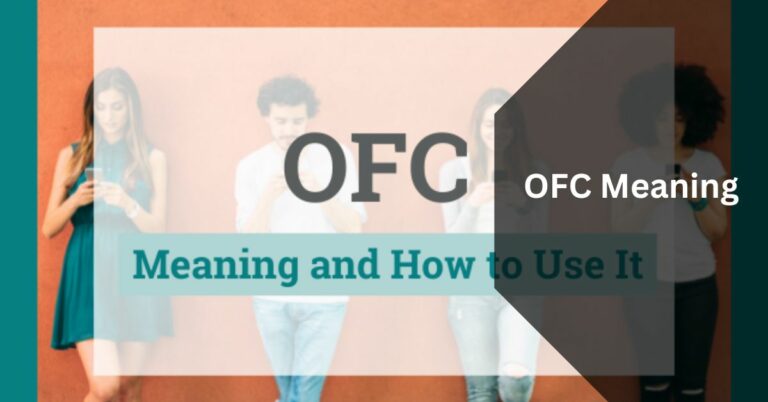Being kicked for being AFK (Away From Keyboard) is a common occurrence in online gaming communities. While it may seem like a minor inconvenience, its implications can be significant for both individual players and the gaming community as a whole.
In this article, we will delve into the reasons behind being kicked for AFK, its consequences, and how players can avoid such situations.
What Does AFK Mean in Gaming? [noblocc] kicked for being afk
AFK stands for “Away From Keyboard.” In the context of gaming, it refers to a player being inactive or not participating in the game while still being connected to the server. This could be due to various reasons, such as taking a break, attending to real-life matters, or simply being idle.
Reasons for Being Kicked for AFK:
Inactivity:
The most common reason for being kicked for AFK is prolonged inactivity. Many games have built-in mechanisms that automatically remove players from the game if they remain inactive for a certain period.
Disruption to Gameplay:
Being AFK can disrupt the flow of gameplay for other players, especially in team-based games where coordination is crucial. It can put the remaining team members at a disadvantage and hinder their chances of winning.
Resource Allocation:
In some games, players who are AFK still occupy server resources, such as player slots or server capacity. Removing inactive players helps optimize resource allocation and ensures a smoother gaming experience for active participants.
Consequences of Being Kicked for AFK:
Penalties:
Many games impose penalties on players who are repeatedly kicked for being AFK. These penalties may include temporary bans, loss of in-game currency, or a decrease in player rank.
Negative Reputation:
Constantly being kicked for AFK can tarnish a player’s reputation within the gaming community. Other players may perceive them as unreliable or inconsiderate, leading to social repercussions such as exclusion from gaming groups or communities.
Impact on Progression:
Being kicked for AFK can impede a player’s progression within the game. They may miss out on valuable rewards, experience points, or opportunities to advance their character or profile.
How to Avoid Being Kicked for AFK:
Communicate:
If you need to step away from the game temporarily, communicate with your teammates or fellow players. Let them know the reason for your absence and when you expect to return.
Manage Time Effectively:
Plan your gaming sessions in advance and allocate time for breaks or interruptions. Avoid starting a game if you anticipate being called away shortly.
Use AFK Features:
Some games offer features that allow players to mark themselves as AFK temporarily. Utilize these features when necessary to inform others of your status.
Stay Active:
During gameplay, remain engaged and active to avoid triggering AFK detection systems. Interact with the game interface, move your character periodically, or participate in team strategies even during lulls in action.
Impact on Team Dynamics:
Being kicked for AFK can significantly impact team dynamics within multiplayer games. When a player goes AFK, their absence can disrupt the coordination and synergy among team members.
This disruption can lead to decreased teamwork, communication breakdowns, and ultimately, a diminished chance of success in the game.
The sudden loss of a teammate can force the remaining players to adapt their strategies on the fly, potentially putting them at a disadvantage against opponents who are operating as a cohesive unit.
Furthermore, repeated instances of AFK behavior can erode trust and morale within the team, affecting the overall camaraderie and enjoyment of the gaming experience.
echnical Considerations:
From a technical standpoint, being kicked for AFK involves various considerations related to game mechanics, server management, and player connectivity. Game developers implement AFK detection systems to monitor player activity and enforce penalties for prolonged inactivity.
These systems must strike a balance between accurately identifying AFK players and avoiding false positives that unfairly penalize active participants.
Server administrators also play a role in managing AFK behavior by configuring server settings, implementing idle timeouts, and monitoring player activity logs.
Additionally, factors such as network latency, server stability, and client-side performance can influence the effectiveness of AFK detection and the overall gaming experience for all players involved.
Community Enforcement and Reporting:
Many online gaming communities have established rules and regulations to address AFK behavior and promote fair play.
Community moderators and administrators enforce these rules through various means, including player reporting systems, disciplinary actions, and community guidelines.
Players who encounter AFK behavior are encouraged to report offenders using in-game reporting tools or community forums.
These reports are typically reviewed by moderators who investigate the allegations and take appropriate action, such as issuing warnings, temporary bans, or permanent account suspensions.
Community enforcement efforts play a crucial role in maintaining the integrity and reputation of online gaming communities, fostering a positive and inclusive environment for players of all skill levels.
Psychological Effects on Players:
Being kicked for AFK can have psychological effects on both the player who is kicked and their teammates.
For the player who is kicked, it may evoke feelings of frustration, guilt, or embarrassment, especially if their absence directly contributed to a negative outcome in the game.
They may also experience social pressure to perform well and avoid being perceived as a liability by their peers.
On the other hand, teammates may feel disappointed, resentful, or demotivated by the loss of a teammate due to AFK behavior.
This can create tension and conflict within the team, impacting their overall gaming experience and interpersonal relationships.
Recognizing and addressing these psychological effects is essential for maintaining a healthy and supportive gaming community.
AFK Prevention Strategies:
To mitigate the risk of being kicked for AFK, players can employ various prevention strategies tailored to their gaming habits and preferences.
These strategies may include setting reminders to take breaks during gameplay, optimizing game settings for performance and responsiveness, using external tools or software to monitor activity levels, and participating in community initiatives to raise awareness about AFK behavior.
Additionally, game developers can implement proactive measures such as AFK forgiveness systems, which allow players to rejoin matches without penalty if they return within a specified time frame.
By adopting a proactive approach to AFK prevention, players can contribute to a more positive and enjoyable gaming environment for themselves and others.
Conclusion: [noblocc] kicked for being afk
Being kicked for being AFK is a common occurrence in online gaming, with various reasons and consequences.
By understanding the implications of AFK behavior and adopting proactive measures to avoid it, players can contribute to a more enjoyable and harmonious gaming experience for themselves and others.
Communication, time management, and active participation are key elements in minimizing the risk of being kicked for AFK.









![[noblocc] kicked for being afk](https://www.expressscope.com/wp-content/uploads/2024/02/noblocc-kicked-for-being-afk.jpg)











+ There are no comments
Add yours